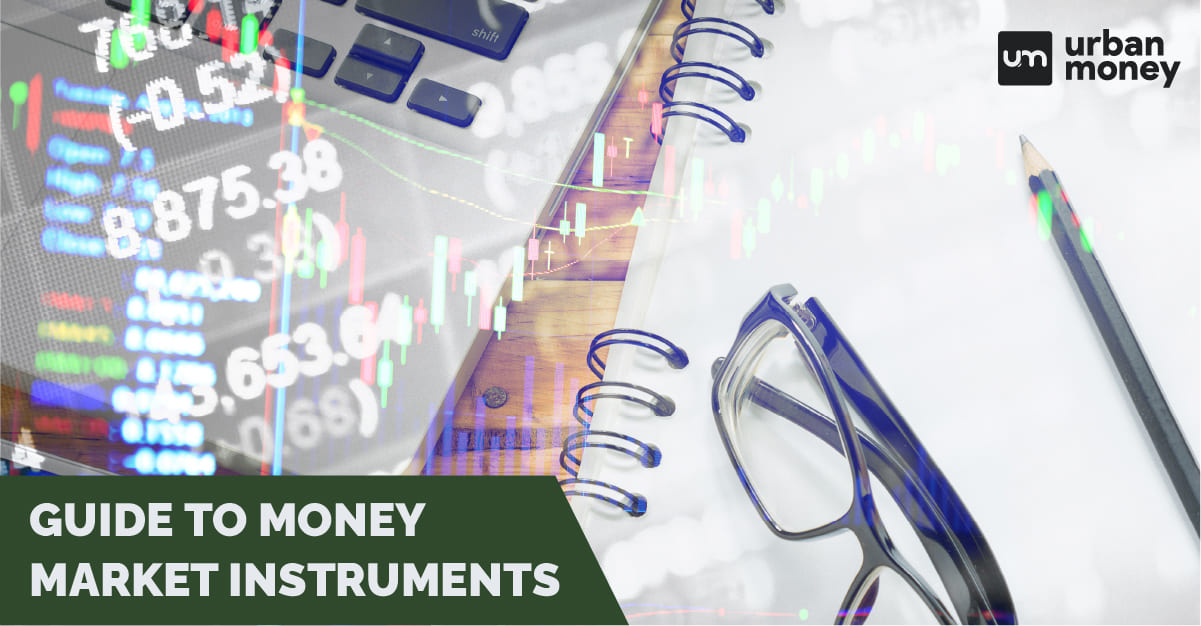Top 10 Best Private Banks in India List 2025
January 09, 2025
March 07, 2023


More often than not, individuals require funds on a short-term basis and Money Market Instruments provide a platform for investors to create short-term wealth. Investors do so by putting a safe deposit in short-term debt securities such as commercial paper. Money Market Instruments require investments for minimum tenure to provide expected returns. Investors count on these funds to meet financial requirements like a planned vacation. Compared to savings accounts, Money Market Instruments attract higher risks, whereas the associated risks are lower than stock trading. However, don’t forget that money market instruments do not generate much wealth compared to mutual fund trading.
Several Indian banks offer money market instruments with competitive interest rates. In this blog, you will get acquainted with the concept of Money Market instruments and their various related features.
Money Market is a platform for investors that involves trading short-term debt securities. An investor here can be an individual or financial institution and traders. The risk factor is considered to be minimal but it is not immune from market dynamics. In case of an uneventful market crash, the money market tends to go down. Investors here trade on a short-term basis, generally less than a year. Banks usually adhere to a minimum balance and minimum tenure policy to tackle the risk factor on their ends.
There are majorly two ways in which an investor parks their monetary capital. It includes money market mutual funds and money market bank accounts. For premature withdrawal, customers have to sell their funds resulting in lesser yields than post-maturity withdrawals. The provision of a premature withdrawal facility allows these instruments to have relatively higher liquidity.
Investors opt for a money market with a specific goal in mind. Their major focus usually is not related to capital gains or wealth creation but rather to safekeeping funds for a limited tenure. Investors invest in Money Market Instruments with the purpose to resell the funds with a slight appreciation. They serve the purpose of meeting financial requirements in the short term. It is highly captivating for short-term investors. Features provided by money market instruments are as follows.
Money Market Instruments in India include short-term debt securities such as treasury bills, commercial papers, certificates of deposit, and so on. This not only helps investors such as individuals, companies, and the government, to acquire money market instruments at a lower price but also enables them to utilise idle funds for short-term gains. Some of the major types of money market instruments in India are as follows:
Money market instruments have been devised to generate short-term funds. However, these are for facilitating various objectives. Some of the objectives of money market instruments are as follows.
Money Market Funds are a specific type of mutual fund where the investors park their monetary capital on short-term financial instruments such as commercial papers, government treasury bills, certificates of deposits, and so on. The fund managers keep an eye out for reputed companies and banks to allocate the investors towards the pooled cash while giving out dividends returns. These funds are usually risk-volatile with minimal returns. However, customers benefit from short-term income generation when they pin their hopes on money market instruments.
Money Market is considered a popular choice for anyone wanting to park their money aside for the short term to create a reasonable percentage of return. They are highly stable investment instruments. Although money market instruments have low to medium risk involved, they can still be affected by major market fluctuations. Money Market investors are usually large companies and government institutions, who engage in trading in large denominations.
On the other hand, the stock market essentially deals with medium to long-term funds. Investors contributing to the stock market usually expect higher returns with an appetite for higher risk. To say which is better, one has to have a fair understanding of the money market. Usually, the intention of investing in a money market instrument is to create short-term gains, whereas the case is reversed in the case of the stock market. Understanding personal needs can help one determine which one to pick on.
Some of the common money market instruments include commercial papers, treasury, certificates of deposit, bills, trade credit, etc. Some of the common stock market instruments include bonds, debentures, shares, asset secularisation, retained earnings, euro issues, etc. Moreover, capital market instruments are a major source of a country’s economic development via increased savings. However, money market instruments are used merely to increase liquidity.
Owing to the high liquidity, money market instruments enable easy withdrawal of funds, making them a relatively safer investment tool. Its main characteristics include a low-interest rate, resulting in minimal returns. In money market instruments, the interest is calculated on a day-to-day basis. The investor then gets a monthly dividend based on the computed values.
We have established that the money market is the kind of investment investors choose if they have less than a year to capitalize on their income. For instance, if someone has a capital of INR 5,00,000 set aside for the purchase of a vehicle and requires the amount to be invested safely, they can consider trading with money market instruments. They are majorly used by big companies, commercial banks, RBI, LIC, financial institutional investors, and so on. With the advancement of globalisation, the money market facilitates online short-term capital gains without geographical barriers.
There are various ways in which money market instruments contribute to economic growth. Owing to its nature of creating short-term funds, the money market potentially increases the liquid value of monetary capital. Here’s a list of the importance of the money market.
When you decide to invest your hard-earned money, you do it for a set time frame. You get the returns by the end of the investment tenure. The end of this agreed-upon term is called maturity.
Throughout this term, the investment is pooled with the offered interest benefits. This makes the monetary capital appreciate over time. Thus, maturity simply can be said that the investment period has come to an end and whatever interest is added till the agreed date is the final amount the investor gets back.
There are several related terms to maturity such as amortization, tenure, term, period, etc. In the case of loans, generally, the amortization period is considered. Amortisation is the breakdown of loan payments into equated monthly installments and the complete term one needs to pay off their debts. However, the term maturity is more closely related to bonds. The end of maturity would mean that the bond issuer is liable to repay the investor with their money.
Yield is the amount of money that is generated for the investment after the stipulated maturity. The yield is paid out to the investor after the tenure ends. Yield is generally expressed in terms of the percentage of the total invested capital and the market price of the security invested in. When the same investment is contributed for securities such as treasury bills, the produced yield refers to the yield on security. With the yield history of a certain security, one can also ascertain the risk factor. It is considered that a higher yield on security means that the risk associated with the particular investment tool is minimal. Furthermore, the higher yield stats is also indicative of higher revenue generation.
| Related Resources |
| Best Investment Plans to Invest in India 2023 |
| ARN Code in Mutual Funds |
| Asset Management Company (AMC) |
| Best Mutual Funds in India |
Money Market instruments are essential in terms of creating short-term funds. They are utilised by various government institutions, commercial banks, and large companies for an array of reasons. Furthermore, money market instruments are used to create high liquidity.
Central banks issue treasury bills to control excess demand in the market. They offer treasury bills at discounted prices while keeping the face value higher. They in turn return the power value to the investors post-maturity.
The money market mainly enables short-term capital gains with increased liquidity. Many major banks, governmental organisations, and large corporations benefit from money market instruments. However, the downside of the money market includes the strict policies of minimum balance and tenure. There are also minimal interest rates as compared to the capital market.
Some of the common money market instruments include commercial papers, treasury, certificates of deposit, bills, trade credit, etc. Some of the common stock market instruments include bonds, debentures, shares, asset secularisation, retained earnings, euro issues, etc.
Fixed Deposits are not considered money market instruments. They are rather a savings scheme. An FD, like a certificate of deposit, offers higher interest than a savings scheme. But unlike the CoD, it is not a money market instrument.
The best example of a money market instrument is the commercial paper which is issued by large companies to facilitate other corporations’ floating cost requirements.
Anyone can invest in commercial paper. They could be an individual, a bank, a company, or a firm. There will be minimum investment guidelines to adhere to. Why is the money market important?
What is the Treasury Bill?
What are the advantages and disadvantages of a money market account?
What are the instruments of the money market and capital market?
Is FD a money market instrument?
What is the best example of a money market instrument?
Who is eligible to invest in Commercial Papers (CPs)?







Top 10 Best Private Banks in India List 2025
January 09, 2025

Top10 List of Petrol Pump Companies in India
January 09, 2025

Dairy Farm Loan in 2025 : Online Procedure
January 09, 2025

Top 10 Best Bank for Home Loan In India…
January 09, 2025

Top10 Best Student Credit Cards in India 2025
January 09, 2025
© 2026 www.urbanmoney.com. All rights reserved.

Need Loan Assistance?